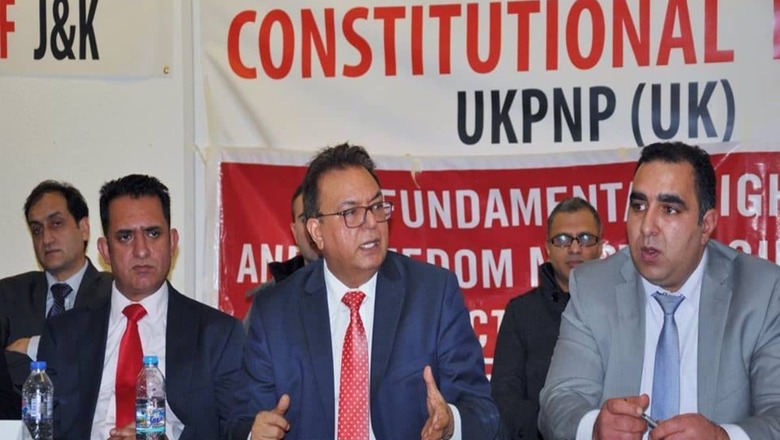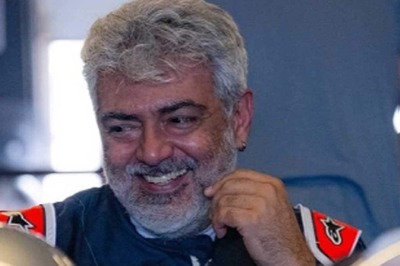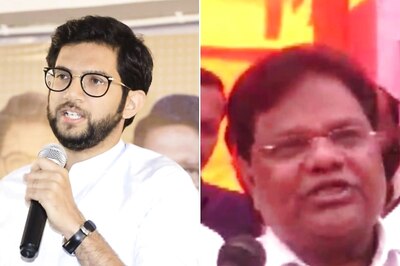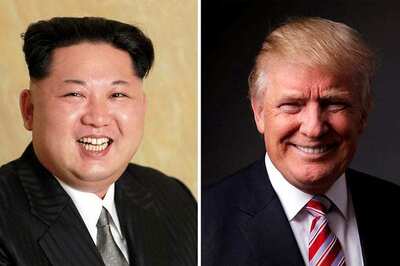
views
On December 28, 2023, the United Kashmir People’s National Party (UKPNP) issued a statement signed by its leader Sardar Shaukat Ali Kashmiri that the top priority of UKPNP was to establish an independent state of Azad Kashmir and Gilgit-Baltistan. This came as a shock to many as it was an abrupt disassociation from its previous stance that advocated for the total independence of the former state of Jammu and Kashmir.
UKPNP leader’s statement has been criticised not only by several political activists in Pakistan-occupied Jammu and Kashmir (PoJK) but also in Gilgit-Baltistan (G-B). Not only that, UKPNP’s statement is in contradiction with the United Nations resolutions but it is also a blatant denial of the legality of the Instrument of Accession signed on October 26, 1947, between the last king of J&K Maharaja Hari Singh and the last governor-general of British India, Lord Mountbatten.
Most of the top leadership of the UKPNP now lives in Europe and Canada. Kashmiri, who lives in Bern, Switzerland, has been attending UN Human Rights Council (UNHRC) sessions for a good few years and has taken advantage of several NGOs that are already registered with the UNHRC to address the session. This self-appointed leader who claims to be the legitimate representative of the people of PoJK comes from a left tradition. On January 4, Kashmiri issued another statement claiming that his party would continue to strive for the establishment of a classless society. UKPNP opposed the abrogation of Articles 370 and 35A in August 2019. He has never advocated for the reunification of the broken state of Jammu and Kashmir by joining the Republic of India.
At the time of partition, one of the main causes for concern for the British was the growing influence of the Soviet Union in Central Asia extending into Afghanistan and Iran and finally into the Indian sub-continent. It was the fear of the Soviet Union gaining a foothold in a free India that led the British to conspire against Maharaja Hari Singh.
Pakistan attacked the sovereign state of Jammu and Kashmir on October 22, 1947. The commander in chief of both Pakistan and Indian armies were British generals. After the signing of the Instrument of Accession, the Indian troops landed in Srinagar and pushed the invading Pakistan armies back. However, the western parts of Jammu province were not liberated since Nehru, the then Indian Prime Minister, on the instructions of Lord Mountbatten, approached the United Nations Security Council and asked for a ceasefire.
The land connectivity of the former state of Jammu and Kashmir that adjoined Afghanistan, the crucial Wakan corridor, and Central Asian republics were all thus cut for good. This suited the British perfectly. Most of the so-called nationalists including the UKPNP, who advocate for an independent state of J&K, continue to endorse the British scheme of the period of the great game or more recently of the Cold War era. What they do not realise is that this is not the era of the Cold War.
During that period, the Soviet Union and China used communist parties in Pakistan and India as the extended arm of their foreign policy. In the post-communist era, these proxies are left high and dry. Especially in the context of PoJK, most of the left parties have become obsolete. The confusion is evident in UKPNP’s statements. To say that their primary goal now is to establish an independent state of Azad Kashmir and Gilgit-Baltistan is to fully endorse the British plan to divide the state of J&K in order to block India’s land access and a direct trade route to the central Asian republics.
On the other hand, it is also a tactical retreat from the original goal of the UKPNP to seek the reunification of the state of J&K as an independent state. At a time when people of PoJK and G-B are marching on the streets protesting against added taxes on electricity bills and an increase in the prices of wheat, to come up with such vague and contradictory statements is testimony not only to UKPNP’s failure to address the most pressing issues we face but also an escape route to avoid being exposed that they have zilch support among the people of PoJK.
One could say that UKPNP has lost the plot but the truth is that they never had a plot at all. As PoJK and G-B are up in revolt, let the left-wingers hide under the carpet of class struggle and pseudo-bourgeoisie separatism.
Dr Amjad Ayub Mirza is an author and a broadcaster from Mirpur in PoJK. He currently lives in the UK. Views expressed in the above piece are personal and solely that of the author. They do not necessarily reflect News18’s views.



















Comments
0 comment